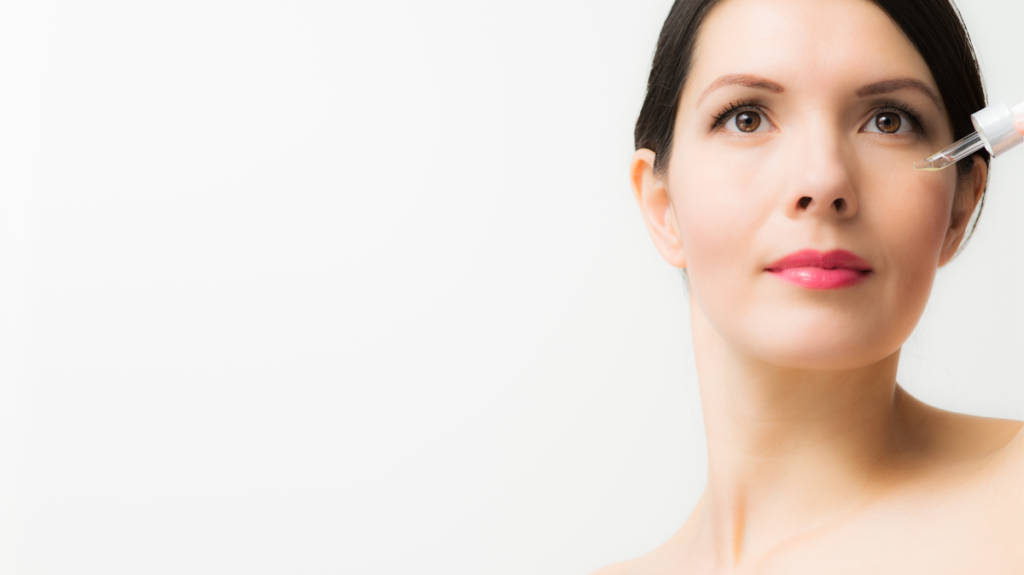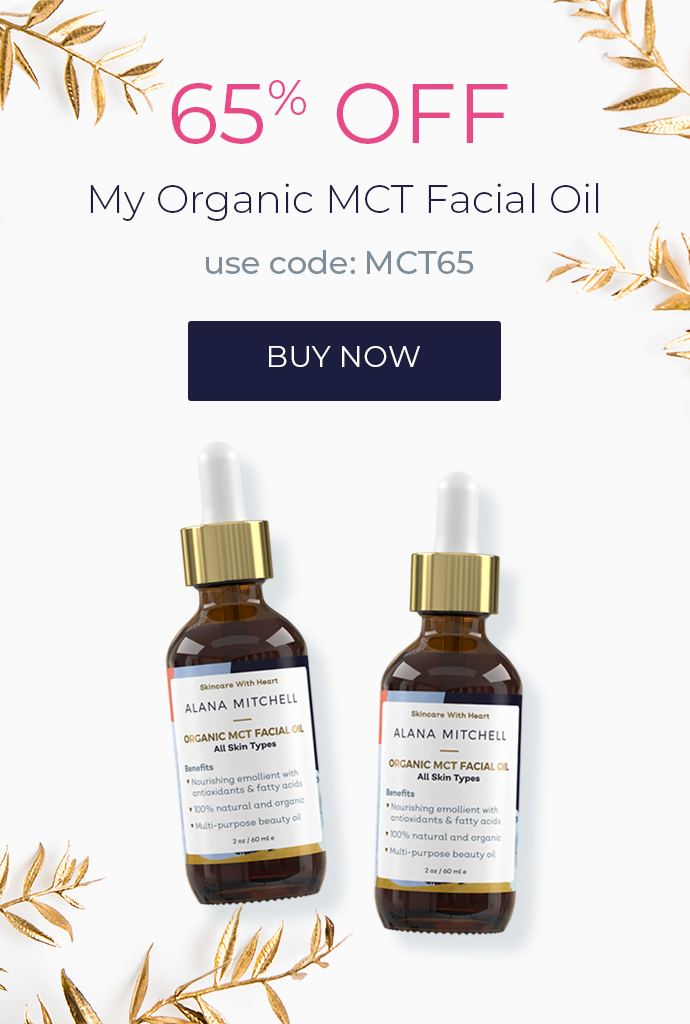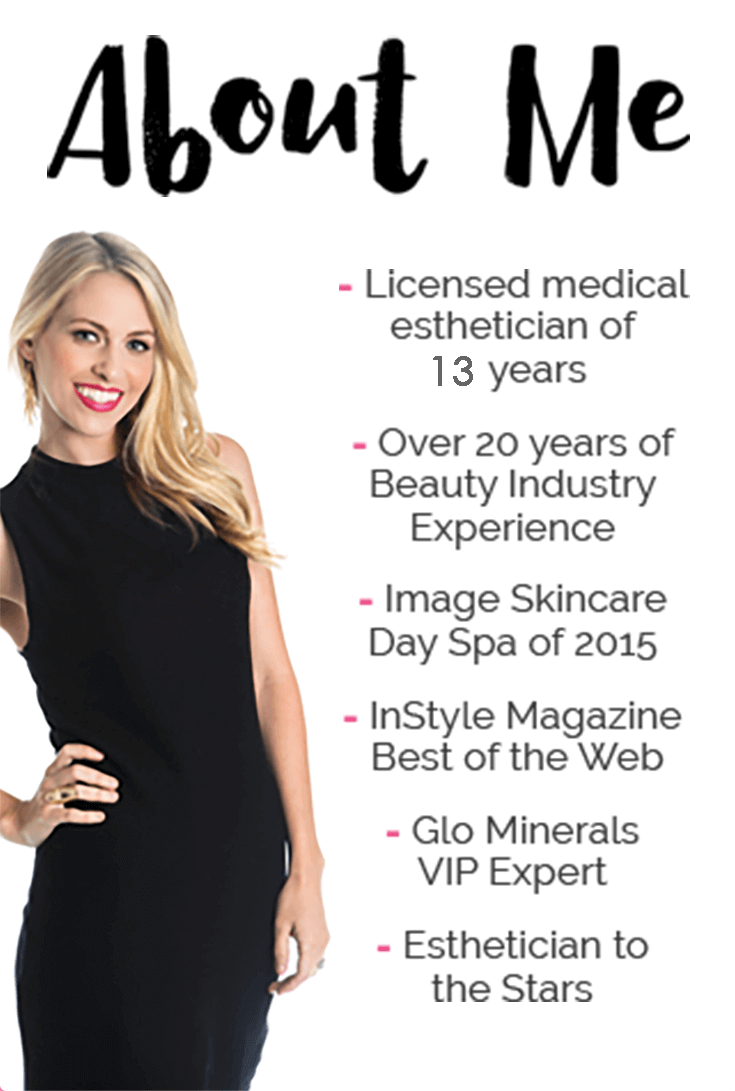What Should You Be Using In Your Skin Care Routine?
Take my quiz and get personalized recommendations from a
licensed esthetician!
Stop Googling About Vitamin A & Retinol - I've Got All The Answers HERE
The dermis layer of your skin is made up of more than 70% collagen.

Let’s face it, beauties, our skin is changing and aging a bit every day.
I prefer to think of aging as in fine wine, don’t you?
When done right, it’s a good thing!
But, within the layers of skin, some vital components begin to break down as we age.
Luckily, skincare science and the nutrition field have given us a pretty powerful tool to support and strengthen the skin and smooth out wrinkles.
Enter vitamin A.
It's amazing for restoring and regenerating damaged collagen.
Before we continue, it's pop quiz time!
What's the #1 skincare product that other licensed estheticians and dermatologists are all likely to agree you should be using?
Well, that was a trick, because if you’ve followed me for more than a day, you know that would have to be sunscreen.
But right after sunscreen?
It’s vitamin A.
I use it myself, and I recommend to almost all of my clients that they use it, too.
Here's another question for you.
What’s one ingredient that other licensed estheticians and dermatologists are all likely to agree you should be careful with?
Also, vitamin A.
Confusing, no? Well, I'll explain!
Today, I want to provide insight into these 3 things:
- The what - A clearer understanding of what vitamin A really is.
- The why - Why it’s so powerful at reversing the effects of aging.
- The how - How it might affect your individual skin and the best way to use it.
Here’s my inside glimpse at why skincare professionals like myself love vitamin A.

What Is It?
One way to look at aging, besides my fine wine analogy, is that it’s simply a biological diminishing of strength and vitality at the cellular level.
(P.S. Research shows that solar UV radiation is the single factor most responsible for skin aging.)
And, one way to look at vitamin A is that it’s a skin protector at the cellular level.
In fact, if a client’s skin is dry, rough, or slow to heal, that’s a sure sign to me that they need more vitamin A.
The 3 basic ways that it helps skin include:
- It handles free radicals like a boss, preventing them from breaking down collagen.
- It encourages the production of fibroblasts, the cells that build up your skin at its deepest levels.
- It protects your skin against any unhealthy invaders by promoting cell production.
History
Retinoids, a category of vitamin A-like compounds, have been used to treat skin conditions and UV damage for decades.
And, forms of vitamin A have been recognized as crucial to our health for much longer.
About a century ago, between 1909 and 1912, scientists discovered a fat-soluble compound in milk that was essential to growth but couldn’t be classified as one of the macros – fat, protein, or carbs.
Around 1920, they began calling this “accessory factor” vitamin A.
Since then, this critical vitamin has been recognized as something our body must have but can’t produce on its own.
And, it seems that more and more now the anti-aging powers of vitamin A are being acknowledged and celebrated.

Types of Vitamin A
Vitamin A comes in two basic forms – think animal and vegetable.
- The preformed vitamin A is retinol. It’s found in animal products like dairy, fish, and meat (especially liver). It’s also made synthetically. Retinyl esters are a form of retinol.
- The precursor to vitamin A (its provitamin form that your body can use to make the actual vitamin) is found in plants and includes beta-carotene and alpha-carotene. Surprise, you’ll find those in carrots!
Of those two forms, vitamin A retinol gets all the props for its rejuvenating properties when applied to the skin.
More on that soon!
Keep in mind that retinol is one type of retinoid (a class of compounds that share the same chemical makeup with vitamin A).
But there are many others used as ingredients in skincare products.
Some are naturally occurring – some are synthetic.
Synthetic retinoids are specialized or made to affect the skin in a specific way.
All types serve similar functions, though. (See the graphic below.)
One main difference?
- Some forms of retinoid will be used immediately by the skin. Those are considered high strength.
- Others need to be broken down by enzymes before they can affect the skin. Those are considered lower in strength for that reason.

Keep in mind that the lower the strength of the ingredient, the higher concentration you’ll need to see effects - and the more time it'll take.
So, what do these incredible ingredients do?
Sooo many things!

The Top 3 Benefits of Retinoids
- Smooth wrinkles.
All the ingredients above will help erase wrinkles because they stimulate collagen production.
Damaged collagen leads to cracks in the skin and results in wrinkles.
Retinoids stimulate the cells that make new collagen and fill in the cracks, creating a smooth surface.
If you ever had any doubts as to the ability of retinoids to do this, check out this study and lay them to rest.
2. Create an even skin tone with a glow.
Retinoids increase the rate of cell turnover.
This means your skin sheds off old cells (likely to be damaged and pigmented) and replaces them with new cells.
The result is a smoother surface, and a more uniform, fresh look.
Say goodbye to dark blotches.
It’s likely that retinoids inhibit melanin production as well.
Overall, retinol and its cousins will promote a glowing complexion with a smoother more even tone.
See why I love them?
3. Clear up acne. This bonus is mostly a result of the cell turnover mentioned above.
Shedding off the old cells keeps pores from getting clogged.
Oil production is minimized.
The fresh new cells and clear pores don’t create a breeding ground for the bacterium that causes pimples.
Having said that, retinoids are not for every acne problem.
Avoid them if you have angry, red, inflamed acne.
It’s likely to get worse with retinol products due to increased irritation.
And that brings me to my next point.
As powerful as vitamin A is, it’s not for everyone.
Dangers
There are circumstances during which you should NOT use retinol products.
Pregnancy – Retinoids have been linked to birth defects and should be avoided by pregnant women.
Excess levels – Retinoids have been linked to bone loss and weakening in cases of excessive intake.
Both consumption of retinoids through diet and application to the skin are implicated here.
Sensitive skin – For the most part, anyone with irritable, sensitive skin will need to take it very slowly.
Some will be able to ease into the regular use of retinoid products, and others will find them too harsh.
See instructions for gradually testing your skin’s reaction to vitamin A below.
UV exposure – Hear this – I don’t recommend the use of retinol and other vitamin A products for anyone who doesn’t take sun protection seriously.
On the inside, vitamin A is working to protect the skin from harmful UV exposure.
But, applied directly to the skin, that’s not the case.
Retinol and the others react to sunlight and can, depending on your skin type, make your skin more susceptible to sunburn than ever.
The usual precautions against UV damage are critical when you use these products.

A Few Skin Types and Conditions to Mention
Dry Skin
The combination of retinol with soothing, hydrating ingredients will be key here.
I recommend hyaluronic acid.
It’s a humectant, and that means it works to bring water in from the air to the skin's layers.
It also locks in moisture.
Also, layering with your favorite moisturizer is a terrific way to ensure adequate hydration.
Hyperpigmented Skin
For this skin type, I don’t recommend combining retinol and vitamin C at the same time as it’s possible that one will inactivate the other.
Instead, try vitamin C in the morning and retinol at night.
Vitamin C will effectively fight free radical damage and signs of aging, repair your skin, and brighten dark spots.
Overall, limit your retinol use to the evening and remain super vigilant about sunscreen and basic sun defense.
Dull, Tired Skin
I want to coin a new term here – dead skin cell syndrome!
If your skin seems dull and lifeless, the likely culprit is a build-up of old cells.
A combination of the retinol to promote that cell turnover and renew the skin, along with a gentle exfoliant to clarify and clear away the old cells, will be unbeatable.
Sensitive Skin
You want to start slowly and respect your skin's sensitivity, but retinol is not completely ruled out here.
You have a few options:
- Start with retinyl palmitate (see chart above) and work your way up to stronger formulations if your skin tolerates it. Stick to a twice a week application.
- If your skin is stable, when ready, try retinol in a time-release version with the lowest concentration.
- Be very gentle and light in application around the eyelids, corners of the mouth, and grooves around the nose as these areas tend to be the most sensitive.

A Retinol Regimen That Works
Always keep retinol products in an opaque container as they are not sunlight-stable.
That’s also why they’re best used at night.
The key to finding your perfect retinol regimen is to start slowly and always, always listen to your skin!
Apply a small amount at night (pea size for starters) to the entire face and neck, and follow with moisturizer.
Then, stay in tune with your skin, measuring its response for the next day or so.

What’s Happening?
Try one night on, two nights off at first.
On the “on night”, the retinol is pushing up dead cells to the surface at an accelerated rate.
On the "off nights", use a gentle exfoliant and a nourishing hydrating serum.
The gentle exfoliant is helping to clear the dead skin cells away and make way for the new cells which are progressing up to the surface.
The nourishing serum is providing the healthiest environment in which the new cells can flourish and thrive.
Then, on the next “on night”, the retinol can penetrate even deeper and continue its repair work under the surface without old cells standing in the way.
It’s possible that you might progress to an every-other-night routine, with one night to rest in between.
That will depend on your individual skin’s response.
Give your skin plenty of time to adjust, and also to start seeing effects.
It can take months for the effects to become obvious because so much is happening under the surface.
Friend or Frenemy?
The questions I get the most about vitamin A are:
- Does it really work?
- Is it safe?
My answer depends greatly on you, your individual approach to skincare, and your unique skin.
It absolutely works, and it can be used safely, but ultimately the real question being asked is this – Is it right for me?
So, I’m going to turn the tables and ask you some questions.
Your answers will make all the difference in whether or not vitamin A is right for you.
Here we go:
- Are you serious about sun protection and do you use sunscreen daily?
- Are you somewhat haphazard when it comes to skincare, sometimes taking risks with your skin’s health?
- Are you prepared to experiment, work gradually, and give it time to be effective?
- Do you have highly sensitive skin that’s prone to inflammation and irritability?
OK, look back over the list.
If you have a Yes, No, Yes, No pattern, you’re a great candidate to see wonderful results with these products.
If you have a No, Yes, No, Yes, pattern, vitamin A products may not be right for you.
Here are some of my favorite vitamin A and retinol products!
Final Thoughts
Vitamin A is a powerhouse ingredient that can work wonders to reverse the effects of aging on our skin.
The skincare professionals you know are using it themselves because the science behind its potency is impressive.
But, these products are not for everyone or every skin type.
They require care in handling and use, and they require a time commitment and patience.
The payoff can be big, however.
If you fit the profile, I’m guessing you’re ready to give vitamin A a try!
Beauties, have you incorporated vitamin A into your routine yet? Have you seen the results? I’d love to hear your thoughts in the comments!
Top Brands
New Brands

Recent Posts

Are You Taking the Right Steps to Care for Your Skin?
Take the Quiz
Skincare Secrets!
10-step guide for healthy, beautiful skin after kids.
100% privacy. I will never spam you!



















